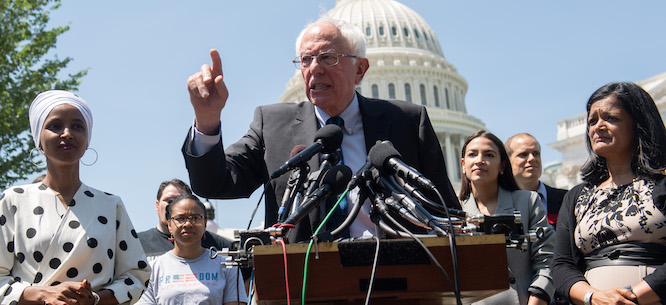Proponents of legislation that would ban members of Congress from trading stocks are say that Democratic party leaders are stalling on the bill.
Though House Speaker Nancy Pelosi (D-California) claimed last week that lawmakers are finally ready to bring a bill to ban Congress from trading stocks to a vote by the end of this month, proponents of the ban are skeptical that that is the case, according to interviews with the lawmakers.
As Insider reports, key advocates of the proposal in the House like Representatives Abigail Spanberger (D-Virginia), Raja Krishnamoorthi (D-Illinois) and Congressional Progressive Caucus Chair Pramila Jayapal (D-Washington) say that, even though lawmakers have been negotiating the bill for months, the details of a potential ban are still not being discussed.
Democratic leadership, meanwhile, has not been clueing lead advocates in on their plans for the legislation — and some lawmakers think that Democratic leaders could be delaying because they’re personally against the plan, with people like Pelosi and her husband personally profiting greatly from stock trading.
As a New York Times report revealed last week, members of Congress regularly make stock trades in companies that their committees oversee, potentially representing conflicts of interest. According to the report, nearly a fifth of Congress has reported making such a trade between 2019 and 2021.
Last Wednesday, Pelosi said that lawmakers “believe we have a product that we can bring to the floor this month. But in a briefing with the Committee on House Administration on Thursday on the bill, advocates were presented with no legislative text, according to two Democratic sources, but just a framework on the bill. Lawmakers on the committee have been claiming that bill text is ready for months, but no such thing has emerged.
“We have not heard exactly what’s happening,” Jayapal told Insider. “I can’t say I’m confident.”
Spanberger has speculated that Pelosi and Senate Majority Leader Chuck Schumer (D-New York) are simply trying to put the bill off long enough until efforts to pass it fizzle out. “I think that they’re trying to run out the clock,” she said in May.
The delay isn’t due to a lack of energy or ideas for the proposal; there have been multiple stock ban bills introduced by members from both sides of the aisle over the past year, with rare bipartisan support for the ban. Those bills all have some form of ban on members’ ability to trade individual stocks. Some include variations on whether their families should also be banned, while others allow lawmakers to keep the stocks in a blind trust or require officials to divest from them entirely.
One roadblock to progress on the proposal in the House may be the House Administration Committee, which is drafting the bill. After the committee held a hearing on the idea earlier this year, committee chair Zoe Lofgren (D-California) was cool to the proposal. Republicans on the committee also said that they are opposed to the idea.
According to Insider, Spanberger sought a meeting with Lofgren after the April hearing, and found a wide disconnect between lawmakers in terms of their understanding of the bill. “It was very clear that some of the members just were on different planets talking about this issue,” said Spanberger. “Like, ‘Oh, am I going to have to sell my house?’”
Even if lawmakers are successful in urging Pelosi and Democratic leaders to make progress on the proposal, Senate Democrats are saying that they won’t propose a stock ban until after the midterm election, according to Sen. Jeff Merkley (D-Oregon), frustrating Senate advocates.
“There is no reason that we should not have a stock trading bill on the floor and vote on it,” Sen. Elizabeth Warren (D-Massachusetts) told Insider last week. “Every day that we delay on passing meaningful restrictions on stock trading among members of Congress is a day that further erodes the credibility of this body.”
Indeed, as the proposal has been delayed, advocates and watchdog groups have grown increasingly frustrated, saying that a stock ban is crucial to restoring public confidence in lawmakers. As long as lawmakers are allowed to trade stocks, they say, the public will question whether or not they’re using insider information to get out ahead; after all, Congress beat the market last year.
This post was originally published on Latest – Truthout.

















